Steemkids lesson| Mathematics: Addition and subtraction of fractions
 background image edited in polish
background image edited in polish
The whole number may involve more than one thing.
For example :
8 oranges are divided ➗ into 4.
The 8 is the whole number of all the oranges while 4 is the fraction. This means that the 8 oranges are separated into 4 parts.
🍊 🍊 🍊 🍊 🍊 🍊 🍊 🍊
8 oranges
🍊 🍊
🍊 🍊
🍊 🍊
🍊 🍊
8 oranges divided into 4 fractions
There are three parts of a fraction:
The numerator.
Vinculum or the division
The denominator
- The numerator is the the number above the line
- The Vinculum is the line that separates the numerator from the denominator.
- The denominator is the number we see below the vinculum/line.
 ̄ ̄ ̄ ̄ ̄ ̄ ̄ ̄ ̄ ̄ ̄ ̄ ̄ ̄ ̄ ̄ ̄ ̄ ̄ ̄
Types of fractions
Proper fractions
Improper fractions
Mixed fractions
- Proper fraction is a type of fraction whereby the denominator is greater than the numerator.
For example:
5/7
2/4
Improper fraction is the type of fraction whereby the numerator is greater than the denominator.
Example:
8  ̄ ̄ ̄ ̄ ̄ ̄ ̄ ̄ ̄ ̄ ̄ ̄2 Mixed fraction. The mixed fraction has both the whole number and a proper fraction.
Example :
11/3
624
Addition and subtraction of fractions
The following are the steps to solve addition and subtraction of fractions:
Step 1:Find the L.C.M of the denominators
Step 2:Divide the LCM by each denominator and multiply ✖ each result by the numerator.
Step 3:Add or subtract (depending on the problem) the numerators and divide by the denominator.
Step 4:Continue the division till the lowest value.
Let's solve some examples together using the above steps :
Problem
Example2:
3/6 + 4/2 + 8/4
Step 1:
LCM of 6,2 and 4
To find the LCM we find the lowest number that can divide the digits. We continue the steps till there is nothing left to divide.
LCM of
6,3 and 4
Dividing by 2
3,3and 2
divide by 2
3,3 and 1
dividing by 3
1,1 and 1
Now there is nothing left to divide.
Next step: ✖ all the digits used in dividing.
2 ✖ 2 ✖ 3=12
Therefore LCM of 6,2 and 4= 12
Having found the LCM we move to the next step.
Next we divide the LCM by each denominator and multiply by the numerators:
The first denominator in the example is 6. So the LCM which is 12 divided by 6 will give us 2. Then we multiply the 2 by the first numerator which is 3 to give us 6.
We do the same to the next fraction which is 4/2.
12 ➗ 2 =6.
6 ✖ 4=24.
The last fraction is 8/4
12 ➗ 4=2
2✖ 8=16
Then we add up all the numerator divided by the denominators.
Example 2:
2/3 ➕ 2/4
Solution
Addition of mixed fraction.
Steps to solve addition and subtraction of whole numbers.
Step 1: Add or subtract the whole numbers
Step 2: Find the L.C.M for the denominators
Step 3: Solve the fraction parts first
Step 4: Add or subtract the whole numbers in front of the fractions
Example
Where we have the same denominator in all fractions we take one of them as the denominator.
For example the question below shows two fractions with the same denominators
Addition and subtraction of fractions with unknown
There are certain problems whereby all the information may not be provided and so we will need to find the unknown part of the problem.
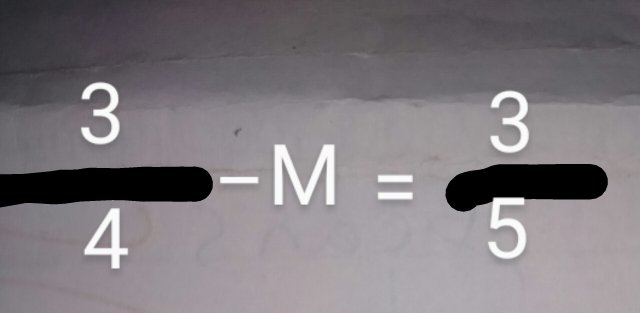 this is an example of a fraction with an unknown
this is an example of a fraction with an unknown
'M' the unknown in the above fraction. We want to find the value of M
The following are the steps to solve fractions with an unknown.
Step 1:Separate the unknown from the values using the equality sign.
Step 2: Solve the known part(values) first. The known is equal to the unknown.
Let's solve the example above using these steps.
Note the negative sign of (-M) turns positive(M) as it crosses the equality sign(=) while 3/5 turns negative (-3/5)
Assignment
 ̄ ̄ ̄ ̄ ̄ ̄ ̄ ̄ ̄ ̄ ̄ ̄ ̄ ̄ ̄ ̄ ̄ ̄
Rules of the assignment
- Use the heading: Assigned homework task for steemkids:Addition and subtraction of fractions
- use hash tags #steemkidslesson #steemkids #steemit #yourcountry
- Drop your entry in the comment section of this post.
- upload the picture of the child doing the assignment and then the final result.
Reward
5 steem will be shared among all participants in this assignment.
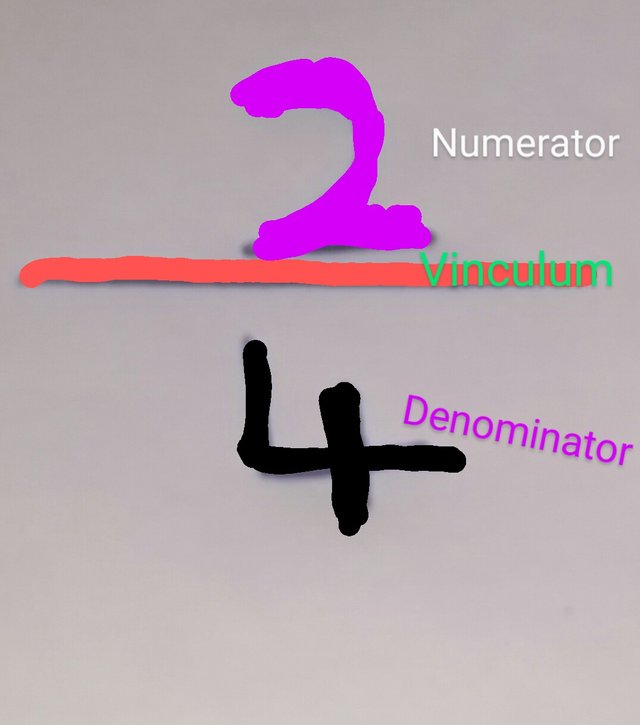
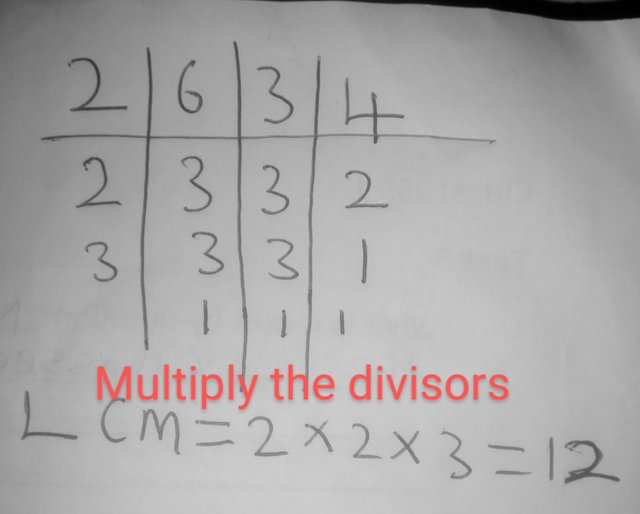
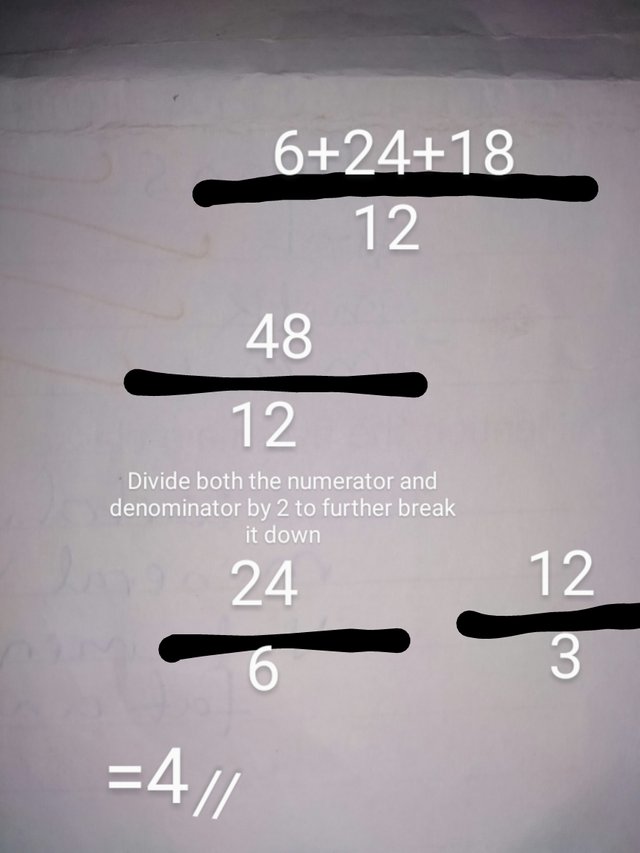
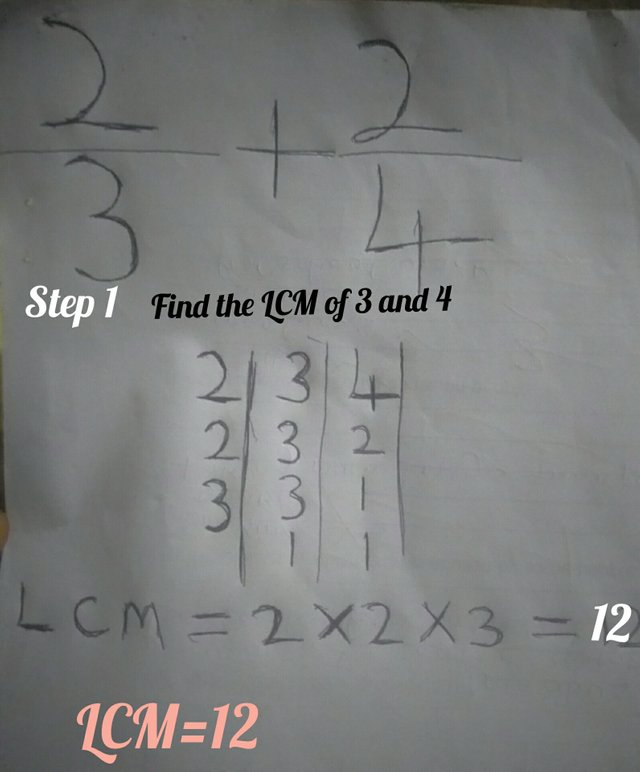
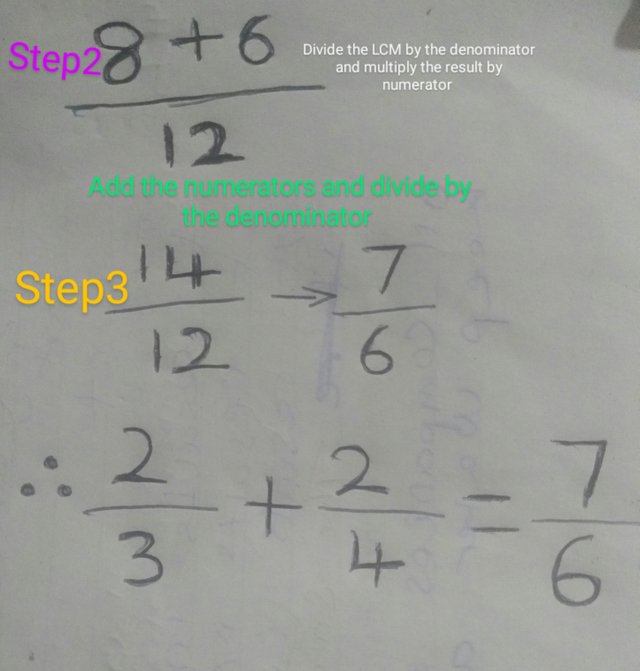

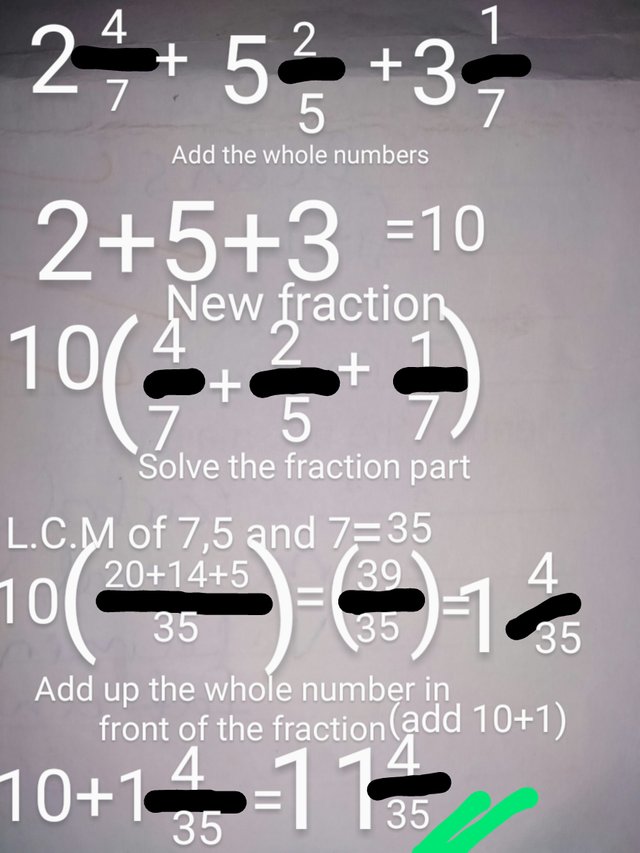
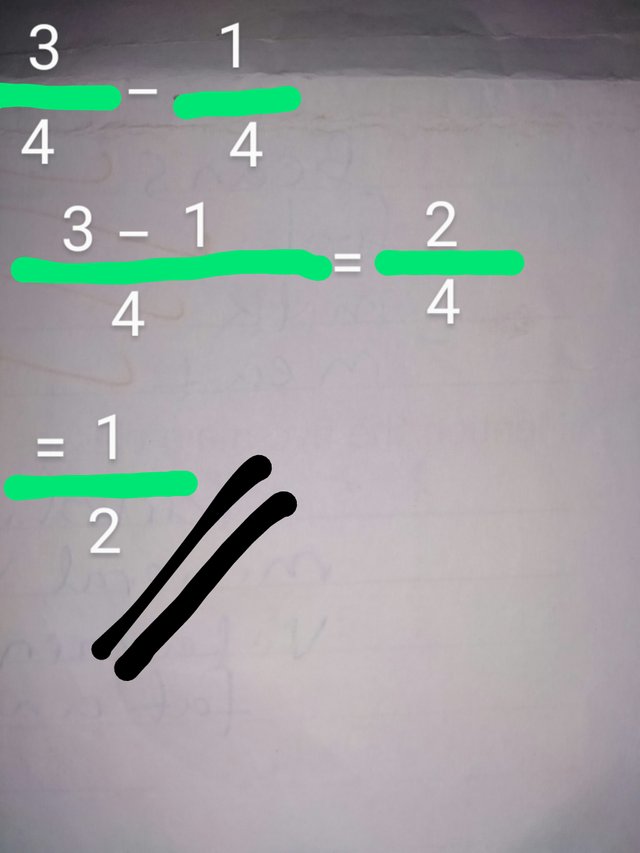

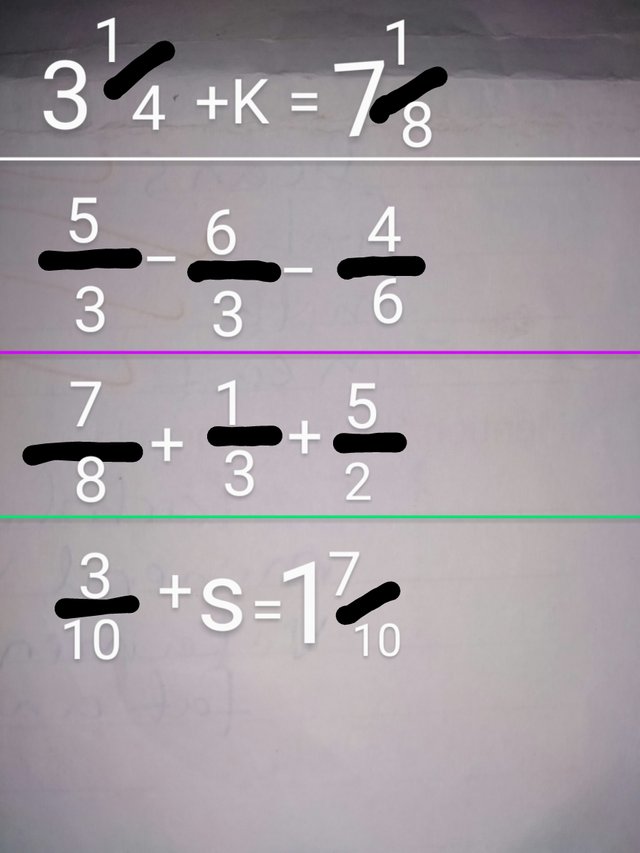
Excelente contenido, gracias por compartirlo con nosotros. Es de gran utilidad para los niños. Saludos con cariño desde venezuela.
Thank you so much @mariajruizb for appreciating my work.
I hope to do better next time.
Thank you @madilyn02 for the lesson.You have a good knowledge of Mathematics.
I sincerely hope the kids will participate in the assignment.
Regards!!
Thanks so much for your complement.
I hope so too.
Thank you @madilyn02 for another wonderful lesson and assignment
Here is my Entry ma'am
https://steemit.com/hive-139765/@chiabertrand/assigned-homework-task-for-steemkids-addition-and-subtraction-of-fractions
Here is my entry 👇
https://steemit.com/hive-139765/@ninapenda/assigned-homework-task-for-steemkids-addition-and-subtraction-of-fraction-by-ninapenda
Hello teacher, kindly see my babyboy's lesson link.
https://steemit.com/hive-139765/@benton3/week-2-steemkids-lesson-or-mathematics-addition-and-subtraction-of-fractions-by-benton3-baby-boy.
Thanks.